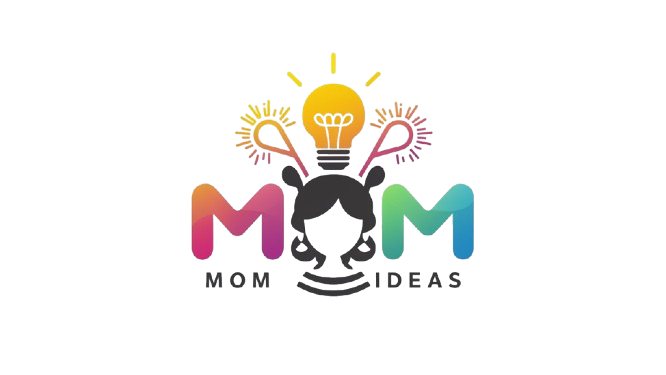Pregnancy is a magical yet overwhelming journey. From the first flutter in your belly to the final stretch before labor, becoming a mother comes with excitement, questions, and a steep learning curve. As you prepare to welcome your little one, here’s advice every mommy-to-be should know before the baby arrives.
1. Prioritize Your Health
Your health is the cornerstone of your baby’s well-being. Focus on a balanced diet, regular prenatal care, and proper hydration. Include fruits, vegetables, lean protein, and whole grains in your meals. Take prenatal vitamins as prescribed. Avoid alcohol, smoking, and excessive caffeine.
Regular exercise, like walking or prenatal yoga, boosts energy and reduces stress. Listen to your body and rest when needed. Sleep is vital, so make it a priority.
2. Attend Prenatal Appointments
Never skip your prenatal visits. These checkups monitor your baby’s growth and ensure your pregnancy progresses smoothly. Your doctor may perform ultrasounds, measure your belly, and check vital signs.
Ask questions during appointments. This is your time to address concerns and learn more about labor, delivery, and postpartum care.
3. Educate Yourself About Labor and Delivery
Understanding what to expect during labor helps ease anxiety. Attend childbirth classes or watch online tutorials. Learn about pain management techniques, breathing exercises, and birthing positions.
Familiarize yourself with medical terms like induction, epidural, or C-section. Discuss your preferences with your healthcare provider to create a birth plan.
4. Prepare Your Birth Plan
A birth plan outlines your wishes for labor and delivery. Include preferences for pain relief, who you want in the delivery room, and how you’d like to handle unexpected situations.
While a birth plan is useful, remain flexible. Labor doesn’t always go as planned, so trust your medical team to make the best decisions for you and your baby.
5. Pack Your Hospital Bag Early
Packing early prevents last-minute stress. Include essentials like:
- Comfortable clothes and slippers
- Toiletries
- Snacks
- Baby clothes and blankets
- Important documents (ID, insurance card, and birth plan)
Don’t forget phone chargers and a camera to capture those first moments.
6. Set Up a Nursery
Having a ready nursery creates a calm and organized environment. Invest in a safe crib, changing table, and storage for baby essentials. Choose a soothing color scheme and add personal touches like wall art or soft lighting.
Ensure the nursery is free from hazards. Anchor furniture to the wall, remove cords, and avoid using crib bumpers.
7. Stock Up on Baby Supplies
Before the baby arrives, gather essentials like diapers, wipes, bottles, and baby clothes. You’ll also need burp cloths, swaddles, and a car seat.
Don’t go overboard. Babies grow quickly, so focus on the basics first. You can always purchase more items later.
8. Prepare for Breastfeeding or Bottle Feeding
If you plan to breastfeed, research techniques and find a comfortable nursing position. Consider buying a breast pump, nursing bras, and nipple cream.
If bottle feeding, stock up on formula, bottles, and sterilizers. Familiarize yourself with feeding schedules and cues.
9. Build a Support Network
Motherhood is rewarding but challenging. Surround yourself with supportive people who can offer guidance or lend a hand.
Involve your partner, family, and friends. Join mommy groups or online communities to share experiences and seek advice.
10. Learn Newborn Basics
Newborns require constant care. Learn how to bathe, swaddle, and soothe your baby. Watch tutorials on diapering and feeding.
Understand baby sleep patterns. Newborns sleep in short stretches, so be prepared for interrupted sleep. Rest when the baby sleeps.
11. Discuss Parenting Roles
Talk with your partner about parenting responsibilities. Divide tasks like diaper changes, feeding, and household chores. Open communication prevents misunderstandings and strengthens your relationship.
12. Prepare Mentally and Emotionally
Motherhood changes your life. It’s normal to feel nervous or unprepared. Focus on the positives and remind yourself that you’re capable of handling challenges.
Practice mindfulness or relaxation techniques. Journaling your thoughts and feelings can help you process emotions.
13. Plan Postpartum Care
Your recovery is just as important as caring for your baby. Stock up on postpartum supplies like sanitary pads, nursing pads, and comfortable clothes.
Prepare easy-to-make meals or freeze meals in advance. Accept help from loved ones when offered.
14. Install the Car Seat Correctly
A car seat is essential for bringing your baby home. Install it early and ensure it meets safety standards. Practice securing the baby in the seat before delivery day.
15. Understand Baby Crying Cues
Babies cry to communicate. Learn the reasons for crying, like hunger, a dirty diaper, or discomfort. Understanding your baby’s cues helps you respond quickly and effectively.
16. Keep Emergency Numbers Handy
Save important numbers, like your pediatrician’s office, in your phone or a visible place. Know the nearest hospital location in case of emergencies.
17. Avoid Overwhelming Yourself
You don’t need to be perfect. Focus on what’s important: your baby’s health and happiness. Accept that mistakes are part of the learning process.
18. Capture Memories
Your baby grows fast. Take photos, write milestones in a journal, or create a scrapbook to preserve memories.
19. Communicate with Your Partner
Having a baby impacts your relationship. Share your feelings and maintain open communication. Take time to connect as a couple, even if it’s just a few minutes daily.
20. Trust Your Instincts
Every baby is unique. Trust your instincts and do what feels right for your family. Seek advice but follow your gut when making decisions.
Conclusion
Becoming a mommy-to-be is a life-changing experience. Prepare yourself with these tips to embrace the journey confidently. You don’t need to have everything figured out. Learn as you go and cherish every moment with your baby. Motherhood is a beautiful adventure waiting for you.




